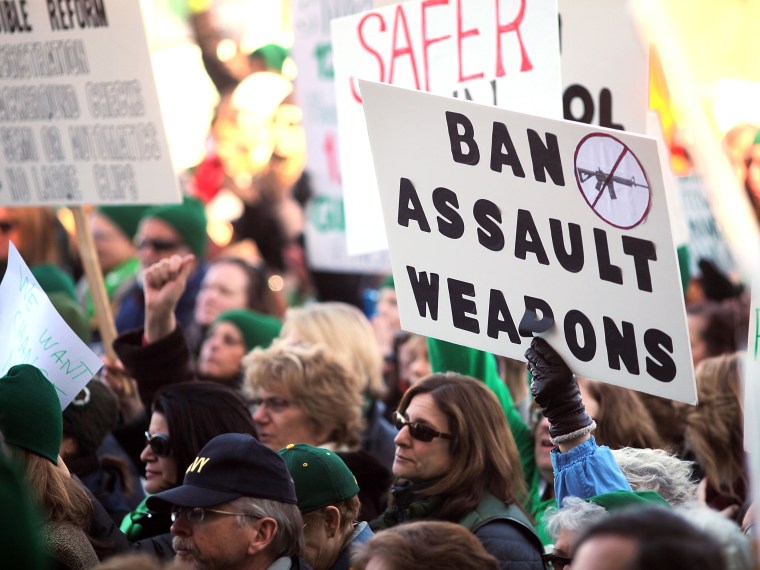Joe Biden is not giving up.
Earlier this week, Senate Democrats were forced to drop an assault weapons ban from their gun control package out of concern that GOP opposition to that component could kill the entire bill. But that doesn't mean the White House is throwing in the towel.
“Attitudes are changing,” the vice president told NPR. “The president and I are going to continue to push.”
Still, Senate Majority Leader Harry Reid dealt a devastating blow to gun control supporters when he said the legislation won’t include Sen. Dianne Feinstein’s ban--which, truth be told, few political observers ever expected to pass.
How does the gun lobby keep winning, even as polls show a majority of Americans support the ban?
“The enemies on this are very powerful,” Feinstein said, referring to the gun lobby. But "it doesn’t take a weapon away from anyone. I mean, my goodness. The NRA says there are two million of these or three million of the, whatever it is in the country already. How many assault weapons do you need in the United States of America?”
“It’s partly a testament to the power of the NRA, the power of the NRA with Democrats,” said Mark Glaze, director of Mayors Against Illegal Guns. “Look at what’s going to happen in 2014, Democrats are up in red states. People like Kay Hagan [of North Carolina], folks like that who don’t’ want to be on record supporting the assault weapons ban.”
Other Dems trying to hold onto their positions are lawmakers in gun-loving states like South Dakota, West Virginia, Arkansas, Louisiana and Montana.
“I think in may ways they will be happy to vote against an amendment, this assault weapons ban, but also support universal background checks. That will make them look moderate,” said Glaze.
Some have gone as far to suggest that the Democrats had no chance to pass the assault weapons ban in the first place—and they know it. Instead are using the ban as a bargaining chip to at least get universal background checks.
So what now? Nia-Malika Henderson of the Washington Post is somewhat optimistic, pointing to the Brady Bill, which took seven years to become law. “It’s not just overnight these sorts of laws have passed. And everything I think we’re seeing is the beginning" of a push to ban assault weapons.
Next, the Senate will debate the bill, likely next month. It now includes expanding background checks, tougher laws against gun trafficking and straw sales and steps to improve school safety. The assault weapons ban will likely get a vote as a separate amendment this year, although it seems unlikely to pass.
Biden, in promising to push for the ban, pointed to the Supreme Court. “And [in] the recent decision declaring the right of someone to own a weapon in their home for self-protection, Justice [Antonin] Scalia acknowledged that you can constitutionally ban certain types of weapons, and so I haven’t given up on this.”
For more on the issue, turn into Hardball tonight. We’ll discuss with Cynthia Tucker, visiting professor of journalism at the University of Georgia and Sam Stein of the Huffington Post.
